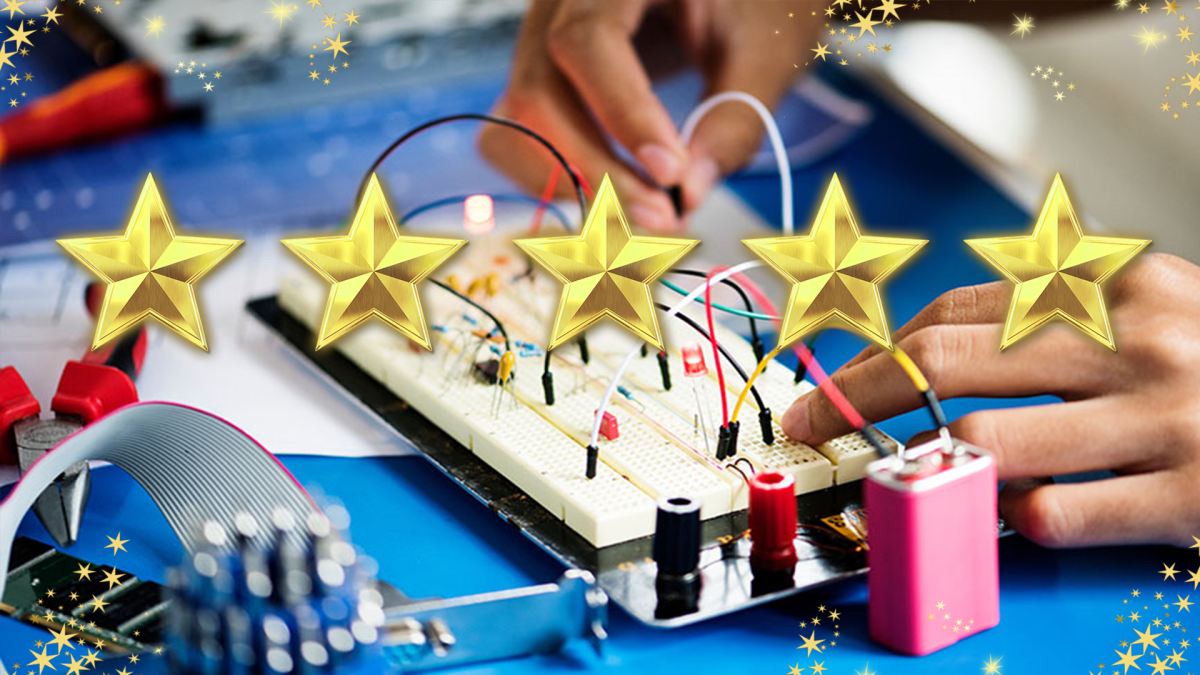Grades:
6th Grade, 7th Grade, 8th Grade
In this hands-on lesson, students will consider what they think about several different closed systems. Then students will design and carry out investigations of living things to inform their closed
Grades:
5th Grade, 6th Grade
This is an introductory lesson designed for a robotics after-school session involving materials and equipment from VEX robotics and coding. Students explore robotics, discuss the tasks robots can
Grades:
3rd Grade, 4th Grade, 5th Grade
This lesson is for 3rd-5th grade students to explore the concept of aquaponics and build a working aquaponics system.
Grades:
5th Grade
In this engaging and hands-on lesson, students will learn how crime scene investigators use science and engineering techniques and technology to solve crimes. Students will match substances based upon
Grades:
5th Grade, 6th Grade, 7th Grade, 8th Grade
Building on the programming concepts explored in part 1, this lesson asks students to re-imagine the ‘spiral-out’ program to be a spiral-in program instead. Designed to be a stepping-stone activity to
Grades:
6th Grade, 7th Grade, 8th Grade
In this meaningful lesson, students use creativity, imagination, and engineering skills to create a water conservation model that can be scaled up and used in a garden. Students are encouraged to
Grades:
6th Grade, 7th Grade, 8th Grade
This is an 8-lesson unit that is designed to be used together to learn about the health and diversity of your local watershed by placing leaf packs into a water source (natural or man-made ponds
Grades:
6th Grade, 7th Grade, 8th Grade
This is an 8-lesson unit that is designed to be used together to learn about the health and diversity of your local watershed by placing leaf packs into a water source (natural or man-made ponds
Grades:
6th Grade, 7th Grade, 8th Grade
In this hands-on lesson, students use fruit snacks or candy to create models of the molecules used and produced in cellular respiration.
Grades:
6th Grade, 7th Grade, 8th Grade
This is a two-part lesson using pull back cars. Students will change the mass of their pull back cars to determine if the mass affects the distance they travel or their speed. This engaging lesson
Grades:
4th Grade, 5th Grade, 6th Grade, 7th Grade, 8th Grade
In this lesson students will be introduced to the Edison Robot and coding. They will work collaboratively to code a program in EdScratch for Edison to complete. Students will work together to test and
Grades:
6th Grade, 7th Grade, 8th Grade
This is an 8-lesson unit that is designed to be used together to learn about the health and diversity of your local watershed by placing leaf packs into a water source (natural or man-made ponds
Grades:
6th Grade, 7th Grade, 8th Grade
This is an 8-lesson unit that is designed to be used together to learn about the health and diversity of your local watershed by placing leaf packs into a water source (natural or man-made ponds
Grades:
6th Grade, 7th Grade, 8th Grade
In this engaging lesson, students will examine the surface of the Moon to consider hazardous conditions that NASA may find there. Then, they will investigate several hazards (dust, boulders, and
Grades:
6th Grade, 7th Grade, 8th Grade
This is an 8-lesson unit that is designed to be used together to learn about the health and diversity of your local watershed by placing leaf packs into a water source (natural or man-made ponds
Grades:
5th Grade
Students will use the engineering design process to design, build, and test three different paper airplane designs. The goal will be to create one that can fly the fastest, one that can fly the
Grades:
6th Grade, 7th Grade, 8th Grade
This is an 8-lesson unit that is designed to be used together to learn about the health and diversity of your local watershed by placing leaf packs into a water source (natural or man-made ponds
Featured
My Very Own Game Controller
Grades:
4th Grade, 5th Grade, 6th Grade
In this engaging lesson, students will design a working game controller using cardboard, conductive materials, and a Makey Makey. The product will coincide with students' prior knowledge of closed
Grades:
5th Grade, 6th Grade, 7th Grade, 8th Grade
In this engaging lesson students are introduced to the key computational concept of variables using Edison robots and the Scratch-based programming language EdScratch4. Variables, which can be created
Grades:
6th Grade, 7th Grade, 8th Grade
This hands-on science lesson will help students get a more accurate view of the solar system by making a scale model with play dough, balloons, rulers, and tape!
Grades:
5th Grade
In this lesson, students comprehend basic physics concepts that are applicable to constructing a device that protects an egg from breaking when dropped. Team building and self-reflection are key
Featured Lesson Plans
Check out these notable lesson plans.

Grades:
2nd Grade
This lesson plan has three main objectives. The first is that students will be able to recreate a map of the canal with 3D structures along the way. The largest structure being Casa Grande, or the

Featured
Makey Makey with The Bionic Kid
Grades:
4th Grade
Imagine how cool it would be to build a video game controller out of bananas! In this engineering design challenge, you will learn how to use everyday items and a Makey Makey kit to design a

Grades:
Kindergarten, 1st Grade, 2nd Grade
This lesson combines ELA (reading and discussing the story), engineering (design a balloon with materials given and attach the balloon to an EdBot), and technology (code an EdBot to run the parade
